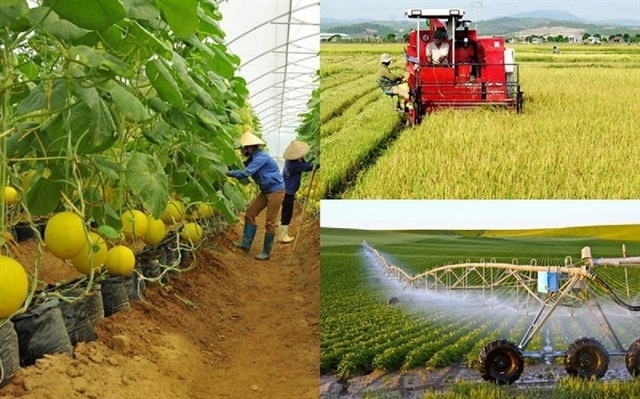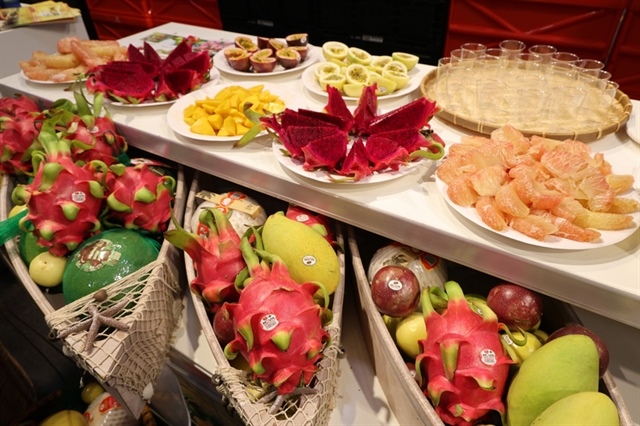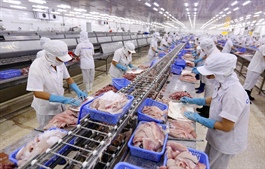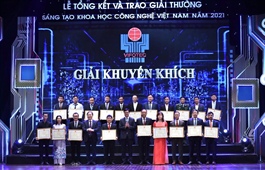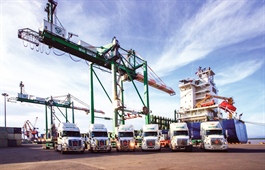Links between farmers and enterprises vital to promoting agricultural product quality, exports
Links between farmers and enterprises vital to promoting agricultural product quality, exports
Ensuring the stable and consistent quality of agricultural products of cooperatives is critical to achieveing sustainable exports, in which the linkage with enterprises played a key role.

Unstable and sub-standard quality of agricultural products remained the biggest worry for exporters.
Nguyen Trung Dong, Principal of the College of Management for Agriculture and Rural Development, said that the export market for agricultural products was expanding. China this year officially opened its doors for five products of Viet Nam. However, high standards were set to ensure quality.
While cooperatives were identified, together with enterprises, as the core force for agricultural production, the production quality remained below expectations, he said.
Ho Duc Minh, Director of Van Xuan Phat Import-Export Company – one of 25 packers granted codes to officially export durian to China – said that farmers played an important role in the supply chain. However, many of them did not pay attention to ensuring product quality.
Ngo Tuong Vy, Deputy Director of fruit export company Chanh Thu, said that there was a lack of uniformity in product quality as farmers and cooperatives did not cooperate with each other to follow certain standards.
Bui Ba Bong, former Deputy Minister of Agriculture and Rural Development, said that the agricultural sector was aiming to build production areas in which every participant was held accountable and managed with transparency.
Only when the linkage between cooperatives and enterprises was enhanced, could Viet Nam’s agricultural products move forwards and ensure sustainability.
According to Pham Thi Thu Hien, Director of the Plant Phytosanitary Centre 2, many markets requested that the growing areas and packing facilities of exporting countries be put under close monitoring with codes issued periodically.
Growing areas and packing facilities needed to comply with the requirements of each market, which would differ among products, and even between the same product she said.
Hien said that the issuance of codes for planting areas and packaging facilities was mainly for fruit but not for products with large export volumes such as rice, tea, pepper, and coffee. There were still instances of fraud in the use of growing area codes, which was affecting the prestige of Vietnamese products, she said.
Hien said that enterprises should work closely with farmers to develop the growing areas and protect the codes, as well as improve product quality.
Le Thanh Hoa, Deputy Director of the Agro Processing and Market Development Authority, said that besides following standards like VietGap and GlobalGap in harmony with the requirements of import markets, cooperatives needed to make plans for production and processing in line with investment in equipment to produce products with high quality.
Training on phytosanitary rules should also be provided regularly, Hoa added.
Stressing that ensuring product quality to meet export standards was a pressing concern, Hoa said that the Government should implement consistent policies in developing cooperatives and the rural economic sector together with support to improve quality standards for agricultural products.
Bui Phuoc Hoa from the Business Association of High-Quality Vietnamese Products said the linkage between farmers and enterprises should be strengthened together with transparency in responsibilities and benefits.
Guidance should be provided to help farmers increase their understanding of the benefits when complying with standards and ensuring stable and consistent product quality.





